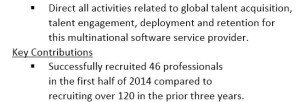— May 30, 2019
Boost your chances of getting approved for a small business loan and limit your liability by building up your business credit.
Are you still using personal accounts to run your small business? Separating your personal and business finances is a good idea for many reasons. For one, you don’t want your personal assets on the hook if your business falls on hard times (read: bankruptcy or a lawsuit).
Do You Need Business Credit?
While building business credit takes time, there are several benefits that are well worth the effort. Not only will you protect your personal credit and limit your risk, business credit can also help you get approved for a larger small business loan at a lower interest rate. With business credit, you’re also less likely to be asked for a personal guarantee.
If you’re applying for a small business loan from a commercial bank or an SBA loan, you’ll need business credit. Online lenders are often more lenient when it comes to credit scores, and pay closer attention to cash flow as an indicator of your creditworthiness.
Let’s not forget about personal credit. Most lenders will pull your personal credit — especially when they ask for a personal guarantee, or your business is new and you have yet to establish business credit. An excellent personal credit score will boost your chances of getting approved for a small business loan, while less-than-stellar credit can be a red flag for lenders.
How to Establish Business Credit
If you haven’t already done so, establishing a business entity that’s completely separate from your personal finances is the first step. If you’re currently operating as a sole proprietorship or general partnership, you’ll need to incorporate or form an LLC.
Corporations and LLCs file their own tax returns and have a credit score that’s completely separate from your own. To incorporate, you’ll need to apply for a Federal Tax Identification Number (EIN), which is essentially like a social security number for your business.
Be sure to open a business checking account in your legal business name and use it to pay a credit card that’s also in your business name — neither should be tied to your personal accounts. It’s also important to set up a business phone line in the name of your corporation, and get it listed in the 411 directory.
Not only will this allow suppliers and lenders to verify your business during underwriting, it gives you an opportunity to build your credit history and boost your rating by paying your phone bill on time. Put any utilities in your business name as well for the same reason.
You’ll also need to get registered with the business credit bureaus. Get a DUNS number from Dun and Bradstreet and register with business credit bureaus like Experian and Equifax.
How to Build Business Credit
Now that you’ve established your business credit, it’s time to build it up by applying for credit. Vendors and suppliers are an ideal place to start. Financing regular purchases, such as office supplies, coffee and marketing materials, is one of the most efficient ways to build your business credit.
Secure a line of credit or negotiate payment terms from net-30 to net-60 days, and always pay your invoices on time. While on-time payments seem obvious, it’s worth noting that a late payment can impact your business credit score for as long as seven years. Once you establish a good relationship with your vendors, you can work your way up to revolving credit lines.
Note that not all vendors report to credit bureaus, so check your credit reports and make sure to open accounts with a few vendors that report to a variety of commercial credit reporting agencies.
Keep an Eye on Your Credit Report
Errors on business credit reports are somewhat common, and can lower your credit rating. It pays to monitor your business credit reports with various agencies regularly so you can report any errors and have them corrected.
Remember to be patient. The longer your credit history, the higher your rating. What’s the fastest way to build your business credit? Once you’ve established accounts with vendors that report to the business credit bureaus, pay your bills on time, in full.
The reward is worth the wait: You’ll have greater access to funding and save money with lower interest rates.
This article was originally published on the author’s business financing blog and was reprinted with permission.
Business & Finance Articles on Business 2 Community
(29)
Report Post






